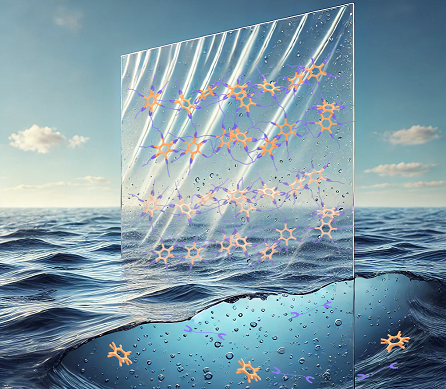Last round of plastics treaty talks ends without agreement
The fifth session of the United Nations Intergovernmental Negotiating Committee to develop an international legally binding instrument on plastic pollution (INC-5) ended without a treaty in Busan, South Korea, in the early hours of the morning. The more than 100 countries participating in what was to be the final round of negotiations have agreed to continue negotiating, reports Reuters.

Camen Morales - tratado Busán EN
Carmen Morales
Lecturer at the University of Cadiz, researcher at the Institute of Marine Research (INMAR) and Scientists Coalition for an Effective Plastics Treaty
Spain and Europe have positioned themselves within the high ambition group on the treaty, along with many others (over 100). Tonight we have heard some very powerful interventions from Panama, Rwanda and Mexico. Countries have moved forward and there is a base document, proposed by the chair, to work on in the future, under the principle of ‘nothing is agreed until everything is agreed’. Researchers from the Scientists Coalition for an Effective Plastics Treaty have provided advice to delegations and observers, providing documentation and scientific data related to the provisions to be addressed.
There is still work to be done, but we have seen more ambition to include the full life cycle of plastics, not just waste, and to include the management of associated chemicals among others. We have also seen in action, as in previous INC [Intergovernmental Negotiating Committee sessions], tactics by unambitious countries to slow down agreements.
The next (extraordinary) phase of negotiations will take place soon.
Ethel Eljarrat - tratado Busán EN
Ethel Eljarrat
Director of the Institute of Environmental Assessment and Water Studies (IDAEA-CSIC)
Predictably, the fifth and final meeting of the UN Intergovernmental Negotiating Committee in Busan to develop a legally binding global treaty to curb plastic pollution has ended without reaching an agreement. Only a new date has been set for further meetings in 2025, thus postponing an agreement to start working now on reducing this serious pollution problem. And while countries are discussing how to tackle this problem, we continue to produce around 460 million tonnes of plastic per year and, if there is no change of course, it will reach 1.23 billion tonnes by 2060. This means that current pollution problems will continue to increase exponentially.
This is the situation desired by the group of fossil fuel-producing countries that includes plastic producers, who are pushing for the agreement to focus solely on waste management, even though they know that currently only 5% of the total amount of plastic produced is recycled. They also know that the plastic that is not recycled, i.e. the vast majority, ends up in landfills, incinerated or polluting our aquatic and terrestrial ecosystems.
It is clear that the plastic problem should not be tackled from a single perspective, but that several measures must be combined. Focusing the solution to the problem solely on strengthening recycling without setting a cap on production is not the right strategy. It is clear that a cap on virgin plastic production should certainly be the first measure to be taken. All countries should agree on this and what should be decided at these meetings is what production cap is to be set.
Unfortunately, we will have to keep waiting for the plastic producing countries to accept what the evidence indicates and this does not look like it is going to happen in the near future.



